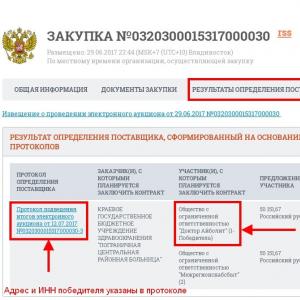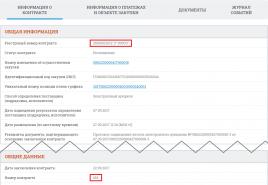How to start a beginner translator. Remote work as a text translator
Hello, Alexander Gavrin is in touch with you.
Now working from home is very popular, convenient and profitable. One of the ways to get income without leaving your apartment is this.
As in any other business, there are a number of pitfalls that must be avoided. Let's take a closer look at what you should pay attention to.
Who can work as a translator at home
Almost anyone can do such a difficult task as translation. Even if you do not have great knowledge, you can make money on it. Contrary to popular belief, for written translation much knowledge is not required.
Of course, you need to have at least a minimal level of knowledge of the language, but most importantly, to understand what you are translating.
There are many school-level language specialists. To understand what is written in the documents, they just need to see a few words or images.
So what do we have? As a translator, it is more important to know the topic than to master the language. There may be tons of dictionaries, glossaries, and the Internet on hand, but you need to know exactly what you are working with.
The only thing that deep knowledge of the language can affect is the speed with which you will work. If you constantly sit in the dictionary, then the translation will take a long time.
But again - with experience and skills, you will start to work faster, as you will be immersed in the same topic.
Most common orders
Without any experience, you probably think that you will work with brochures, articles or books. This happens, but very rarely.
Basically, you will have to work with those. instructions and various contracts. In addition, there is a lot of documentation, such as passports, certificates, certificates, etc.
Another feature of the work is that not all instructions and contracts are written in correct English.
Most often, the text will be written by Chinese, Arabs, French or Turks, who themselves are not Ferstein in English.

REGISTER FOR INTENSIVE
Because of this, you often have to work with words and phrases that simply cannot be found in the dictionary, because they do not exist.
Working with such documents will require separate training and skill. But don't worry - with experience everything will come. Knowing the topic will make it much easier for you to understand what is written in clumsy English.
Where to find a job and how not to fall for deceivers
Translators often work in specialized bureaus. These organizations themselves are looking for work for you. All that remains is to complete the task and get paid.
Naturally, finding such a job is not easy at all, especially if you are a beginner. Bureaux are usually very attentive to their clients, because one poor-quality translation can ruin relationships that have been built for a long time.
Because of this, it often happens that your resume may simply be ignored. You may not pass through the parameters. You need to learn to present yourself well and then the chances will increase.
√ You can also search for orders on translation exchanges. But there, for the most part, you will deal with one-time customers. And the likelihood of contacting scammers is much higher.
√ Of course, you shouldn't see everyone as cheaters. There is a widespread belief among newbies that scammers like to give test tasks and then disappear.
√ Of course, anything happens. But usually, exchanges are needed to ensure a reliable deal and so that no one dumps anyone.
√ Do not rush to draw conclusions about the test items. If they did not want to work with you further, perhaps the customer was simply not satisfied with the quality.
√ And this, by the way, happens in 90% of cases. Newbies often do work that needs to be completely redone.
How much can you earn from translations
This is very frequent question and many people really think that you can earn a lot by translating some documents. Let's clarify the situation right away - there won't be millions here.
For the most part, the translation market looks like this: high-quality translations are rarely required, since documents are needed mainly for a tick (for example, for customs or verification). Really, no one really needs your translations.
This means that customers are not interested in paying dearly for a piece of paper that will lie in a pile of documents or gather dust on a shelf. Due to the low requirements for the translation, it can be done by almost anyone and for little money.
TRY QUORK EXCHANGE
√ The translation fee is very small. The average cost of one page (1800 characters) ranges from $ 100 to $ 200. About 10 pages can be translated per day of work.
√ But this is if you are fast typing and know your topic. Now you can roughly calculate how much you will be able to earn at first.
√ Of course, there are niches where translators earn several thousand per page, but it is very difficult to get there due to the great competition.
√ First you need to work at low prices, get your hands on it and gain experience. Only by mastering a few skills can you take on a bigger job.
5 cons of working as a translator at home
We noted one minus. It will take some time to work “for pennies” and only then will it be possible to switch to more profitable orders. However, there are other downsides to working as a translator.
- You will have to sit at the PC for a long time. You will spend most of your time at your computer. Staying in one position for several hours is hard enough. So get ready right away to take breaks, rest your eyes, and take regular walks.
- Will need to work on weekends and holidays. Translations are very often needed on weekends and as soon as possible. So overtime is an opportunity to make money. But on Monday morning, when everyone is running to work, you can afford to relax.
- Get ready for big rushes and lulls. Freelancing is unstable. This means that at some point you may be overwhelmed with work or, on the contrary, complete stagnation will come. You just need to be ready for this and not worry.
- It will be scary at first, and then bored. At first, you will worry about your job. But when you get used to it and immediately understand what you are dealing with, you will want something new. For example, translate a book. But orders will only contain instructions and contracts. There is nothing to be done - this is the same type of work and variety is rare here.
- You will need to master self-discipline. When you work from home, you are on your own. Nobody will “stand above the soul” and force you to work. There will be a lot of things that need to be done now, and the work will want to be postponed until “tomorrow”. This approach will lead to the fact that the bulk of the work will be completed by the deadline. To make translations efficiently and on time, learn how to balance the load. You will be able to rest normally and make the most of it.
Conclusion - where to start
So, the first and most important thing for work is confidence. Once you get started, you will quickly come to terms with disadvantages and understand how to make money faster and more.
Translating written texts requires practice, knowledge and patience. This is a rapidly growing area in which you will have the opportunity to constantly learn new things and work with by different people... As a translator, you can help people get the information they need, learn, have fun and communicate with each other.
Steps
Part 1
Where to begin- It is also a good idea to teach your own language. Most people speak their native language, but cannot explain in words how it works. Learn your native language not just as a native speaker, but as a linguist, in order to better understand what rules apply in it and how foreigners learn it.
-
Get an education in the specialty in the field in which you plan to work. You can go to the Faculty of Foreign Languages \u200b\u200band get a diploma in translator, but many take a different path. Do you see yourself as a translator at a bank? Get an education in finance. Do you see yourself as a medical translator? Study biology or medicine. You need to understand exactly what you will be translating in order to be able to do it well and quickly, and the right knowledge base will help you with this.
- Also work on your writing skills. Many people think that knowing a foreign language is enough to work as a translator. In fact, to become a successful translator, you must become a good writer. You need to not only learn the language and your specialty, but also constantly polish your written speech. If you speak a foreign language, this does not mean that you can professionally translate written text. Ability to clearly express thoughts in writing, a rich vocabulary, fluency in different styles (depending on the field of translation), excellent knowledge of spelling and grammar of your native language - without this you cannot become good translator.
-
Sign up for courses in interpretation and translation. Translation requires true skill. A good translator makes tiny changes to the text he or she works with to make the translation as relevant as possible to the audience, culture and context. If you are a student of another specialty or have already graduated from a university, sign up for translator courses: it can be professional retraining courses, a second higher education or another form, depending on what your level is at the moment and how much effort, time and money you are willing to invest in additional education. Appropriate education will not only give you the necessary knowledge and skills, but will also help you sell your services to future employers.
- While you are studying, look for opportunities to work as an interpreter or translator within the walls of your educational institution. It is very important to start as early as possible in order to gain experience and recommendations. You will need them later.
-
If possible, go to a country where the language of your choice is spoken. The best way to appreciate a language, truly understand it and see its nuances, and go to a country where this language is the state language. You will hear how people actually speak, recognize local words and typical phrases, and truly experience the language in its natural environment.
- The longer you stay in this country, the better you will learn a second language. Spend more time with locals than other expats!
Part 2
Compliance with professional requirements-
Volunteer. When you're just starting out, you will most likely have to work for free to fill your resume and make connections. Talk to public organizations, hospitals, international sporting events organizers and see if you can help with translation. Many translators start with this.
- You may know someone who works in an industry that deals with people who speak different languages. Ask everyone you know if they need your free help. It is unlikely that you will be refused! If volunteering opportunities are difficult to find where you live, look online for non-profit sites that need volunteer translators.
-
Get your diploma. Although a diploma of higher or additional vocational education is not absolutely necessary, it will make it much easier to get a job. Employers will look at your education and believe you have the skills to get the job done.
- In other countries, there are professional associations (such as the Association of American Translators in the United States) that independently certify translators. This practice has not yet spread in Russia.
- If you are looking to become a translator in the forensic or medical fields, look for specialized courses in these areas. Domestic legislation does not require mandatory special certification.
- Nevertheless, certification centers have already appeared in our country, where you can get a document confirming your qualifications. This can be useful if you speak a rare language in which vocational education programs cannot or are difficult to find.
-
Take the language proficiency test. Take a foreign language test to show potential clients that you are truly fluent. While the results of this test will not show how well you speak your native language, it will demonstrate to potential employers your level of proficiency in a foreign language.
- Each language has its own testing system. For English - IELTS, TOEFL, Cambridge exams (CAE, CPE), for French - DELF, DALF, for Spanish - DELE. Find out on the Internet which exam you can take in your language, where it is taken and how to prepare for it.
Part 3
Job search-
Register on the job search forum. Sites such as ProZ and Translators Cafe (for translators only) and Upwork and Guru (for any freelancer) post freelance jobs that can help you get started in your career. Some are free, some require a membership fee, or charge a percentage of the reward received - however, if you're serious about it, it usually pays to pay. There are translators who make a successful career working primarily - or only - through freelance exchanges. You can make good money on them by fulfilling orders for foreign clients, but the competition is very high, which means that you will have to constantly prove that you are the best.
- There are also sites like Verbalizeit and Gengo where you are required to take a test, the results of which are then placed in a database of translators, which clients turn to to find translators. If you are proficient in the language and have a good resume, try these sites for additional income.
-
Take an internship. Paid or unpaid internships are a very common way of gaining experience for interpreters and translators (as well as for many other professions). At the end of the internship, you may be accepted on a full-time basis.
- Working as an accompanying translator is a good opportunity for future interpreters to work alongside a more experienced colleague. If you are an interpreter, ask your potential employer if they need interpreters to accompany you.
-
Take your niche. Concentrate on one or two areas in which you know the language and the item itself. For example, if you know medical terminology, it will be much easier for you to deal with medical translation. You will also be able to identify errors or inaccuracies in the original text.
- It is often easier for translators to find work in areas with a particularly high demand for language services. For example, business and legal translation... It's good if your niche is in one of those areas.
-
You can write to employers directly. Translation agencies are always looking for good translators. Enter brief information about yourself - name, contact details, language - and ask to send you a text for a test translation. The longer your letter is, the less likely it will be read. Keep in mind that translation agencies usually have their own fixed rates, and they are usually quite low, but you do not have to search for clients yourself.
Part 4
Career success-
Install the required software. Computer-assisted translation (CAT) tools are essential for translators, especially in the business or scientific field where there is a lot of repetitive terminology and wording. In the field of, say, literary translation, they are completely optional. And no, Google Translate doesn't count - CAT tools mean that the text is translated by a person, not a machine; the program only helps to facilitate and speed up the process.It's about automated A good idea would be to establish, for example, free program OmegaT and the free Open Office suite for whatever projects you plan to work on, or use the online Smartcat tool.
- Unfortunately, many customers (especially translation agencies) may require that you work with Trados translation memory. When you can afford it, consider updating your software.
-
Translate only on your native language. You will soon find that translating from a foreign language into your native language is much easier than vice versa. This is due to the fact that for each project you will need to know certain vocabulary that you may not know in a foreign language and for mastering which you will need to do some research - and this is much easier to do for your native language. In addition, no matter how well you speak a foreign language, if the text is complex enough, then certain nuances will immediately tell an experienced reader that it was not translated by a native speaker. This is especially true of literary or journalistic translation with a variety of idioms, slang, puns and the like.
- As you can see, you need to be fluent in Russian. A successful translation will happen when you translate on native language texts on a topic that you know like the back of your hand. However, in the course of working with domestic clients or employers, you will often come across the fact that you will be required to translate on foreign language. Whether to agree to such projects is up to you.
Stick to market rates. As your experience grows (and with it your resume and portfolio), you will be able to increase your rates per hour, word, writer's sheet, and so on. Keep the price competitive and target those with similar experience.
Learn a foreign language. "Explore" is kind of an understatement. You have to master a foreign language inside and out, from formal dialogue to everyday conversations, including terms from sometimes the most unexpected areas.
At the beginning of its professional activity any freelance translator faces various challenges. Some recommendations and advice for novice translators can help in mastering this type of activity.
The principle of achieving success in work is efficiency, which has its own specific features.
- Knowledge of any foreign language.
- Perfect knowledge of the native language.
- Knowledge of the subject of translation.
It is important for the translator to understand how much of the text he is ready to translate for a certain time unit, which is then estimated in currency and shows the profitability of the translator's work for himself.
If a freelance translator does not have a diploma, for example, in financial or legal types of translation, he can set himself the goal of obtaining such a diploma or improve his language skills in various areas in which he will be engaged in translation. Many professional translators work without a diploma, being only native speakers of the language. Only the quality of the work performed matters.
Where to look for a job as a translator?
- Many experienced translators aloud recommend starting your search with a translation agency. You should not take a passive position by posting your resume on job search sites, send it directly to a translation agency in your city, they usually willingly interact with novice specialists.
- If you want to deal specifically with direct customers, pay attention to freelance exchanges. Special attention should be paid to specialized services, such as the open translation exchange http://perevodchik.me/ and http://tranzilla.ru/. These exchanges differ favorably in that they allow you to place your open contact information and receive orders directly, without overpaying to intermediaries.
Important tips to give to the aspiring freelance translator are:
- Improving language skills and acquiring new knowledge. By following these tips, the freelancer will have no problems when performing translation work.
- Thinking outside the box for finding customers who need the knowledge of a freelance translator. There are always customers, but it takes effort to find them.
- You cannot take an order to work if it is too difficult to complete. All professionalism consists in refusal of the proposed order if there is no experience in translations in the proposed area. Honesty with a client is more expensive than a taken and unfulfilled order. The approach shows the translator's awareness of his capabilities, which will contribute to the trust in him on the part of customers.
- Discussion of emerging issues, which will present the freelance translator as a scrupulous and thorough person who can be entrusted with the work. Professional translator does not guess the client's wishes, but identifies possible difficulties and problems in the translation and solves them together with the client.
- When performing specialized translations, especially those affecting the legal and medical field, a freelance translator must reproduce the author's approach of the original processed text. The task is not to literally reproduce the translation, but to convey the meaning of the text.
- A translator should remember that when working on a freelance basis, he cannot use the help of a proofreader or an editor, so he assesses the style and grammar on his own.
A freelance translator should remember that market principles work in the modern translation industry. The exclusivity and quality of translation services will be more in demand. Today, there are far fewer good, competent translators than it seems. At the beginning of his work, a translator must remember that in the future, great prospects open up before him.
A lot of people who have started doing this work earlier and have already gained useful experience are ready to help a beginning translator, as well as warn him against many mistakes during work.
21.04.2016
Entering a prestigious language university, each student thinks that after graduation and receiving the coveted crust, he will be a good translator and a specialist in demand. But the profession of a translator is one of those, the knowledge of which must be constantly improved and updated. The language does not stand still, it develops, replenishes and changes all the time. To become a high-class professional, you will have to devote a lot of time to training and self-development even after graduating from a university. The nice thing is that they mostly pay well, so the reward will not be long in coming.
You cannot do without a university in this specialty: during their studies, students translate a lot of literature, various magazines, watch films without translation. Thanks to this, a lot of useful and interesting information about the world, countries and other cultures is learned. Simply put, without a higher education in a language specialty, there will be catastrophically little knowledge and horizons for performing various translations.
The profession of a translator is extremely difficult, a person must be very attentive, because it is on him that the understanding of interlocutors who speak different languages \u200b\u200bdepends. When translating information, it is worth considering not only the peculiarities of speech, but also to be a psychologist, a person who understands people and their behavior.
Representatives of this profession, wishing to receive a good income, must be able to combine different types of activities: interpretation and translation.
Interpretation includes working with people, that is, in this type of translation, you need to be able to quickly switch from language to language, and grasp the meaning of what was said. There is consecutive and simultaneous interpretation. In sequential, the native speaker pauses, giving the person the opportunity to translate the phrase. Simultaneous translation is more difficult, since it requires speaking simultaneously with the person whose speech is being translated. People who know how to work in this mode are considered the elite of the profession.
Written translation is much easier, since literary and scientific texts have time to think and choose the most correct and laconic version of the translation.
Big cities such as Moscow, of course, provide many opportunities for people in this profession.
Newbies can start by working as a "translator" by working with publishers or translation agencies. Such work can even be remote, all in modern times of digital technologies it is very easy to transfer information.
Synchronist services are required at various events such as exhibitions, lectures by foreign experts, as well as at business negotiations. Such work is very interesting for those who want to communicate more with people, but one must remember about a huge responsibility: an incorrect translation can lead, at best, to misunderstanding, at worst - to disruption of negotiations and loss of profit.
There is also a seasonal profession as a guide-interpreter. It is popular among students, as it provides not only income, but also the opportunity to see the world, and even relax.
Secretaries-assistants with knowledge of a foreign language are often required. Only the constant search for such people suggests that there are very few really qualified specialists.
When choosing the profession of a translator, you should immediately think about the type of translation you would like to perform. The choice of an educational institution or specialized courses depends on such a decision. Various schools provide various biases in the profession. For example, the direction of linguistics and intercultural communication is suitable for a guide-translator. If you want to become a technical translator, you can choose a foreign language faculty at any educational institution.
If you know any foreign language, then you may well make money from home by translations. But first you need to learn how to become a freelance translator and reach your first customers.
If you start your journey wrong, then there is a high probability that you will soon give up this business. No orders - no money. I will show you the shortest and most profitable way from my personal experience.
And let's start with this question - what knowledge and skills should a person have in order to work as a freelance translator?
Who can become a freelance translator
What I am going to tell you here is in many ways at odds with the "conventional wisdom." But I have experience working as a translator and managing my own translation agency. That is, I studied this issue from both sides. Therefore, you can trust me \u003d)
And here's the first interesting thought. Often people think that to work as a translator you just need to know a foreign language very well. That is, this requirement is always "by default". But actually it is not.
The fact is that language is a very multifaceted thing. If you can, for example, speak well english language - does this mean that you will be a good translator? Not at all. We are often asked for work by so-called “bilinguals” (these are people who have two native languages, for example English and Russian) - but they are completely unable to translate.
Translation and knowledge of the language are two completely different things. If you, a Russian person, are now given a description of some industrial chemical processes, you will not understand a word there. Although everything will be written in Russian.
On the other hand, if you give the same document to a specialist in industrial chemical processes, he will understand everything that is described there without words, using only pictures and formulas.
Therefore, I have always argued and continue to argue that in order to be a good translator, you do not need to know a foreign language very well. But you should definitely have a good understanding of the topic you are translating into.
Do I need to have a higher education in translation?
And here's a second "interesting thought" in pursuit of you. In fact, higher education in translation only hinders the ability to translate. Yes, that's exactly how it is. If you are a philologist or a linguist by training, or generally a technician, you have a much better chance of becoming a highly paid translator than a graduate of the translation department.
Do you know why this happens? This is pure psychology. Imagine a person who has studied translation for five years. And he believes that he has already something, but he has learned to translate. With his diploma, he comes to a potential customer - and there he is told that all his knowledge is worth nothing.
And that they won't pay him a lot of money. And they will pay the smallest penny so that he does not starve to death until he learns to translate for real.
Imagine the frustration and anger of such a person. Naturally, he decides that no one needs translators today. And he goes off to teach foreign languages or tutoring.
But another person - a philology graduate - also wants to translate. And they also tell him that he cannot do anything, and that they will not pay him much. And the person ... agrees. Because he himself knows that he is not really good at anything yet. And he begins to study, and over time he becomes a very good translator with excellent earnings.
Therefore, if you do not have a translation education, rejoice. You are more likely to be successful in this field.
What if there is no niche knowledge?
At the beginning of the article, I said that knowing the language very well is not necessary, but it is necessary to understand the topic. So what if you don't know much about any topic? You are not a medic, not a chemist, not an engineer. Maybe you need to go to get additional higher education?
In fact, you need to learn. But I strongly recommend that you conduct training "in combat". That is, start translating on some topic, and after 2-10 orders, you will begin to understand it very well.
Yes, first sit with dictionaries and the Internet, but then you will see that the terms are the same everywhere, and the constructions and sentences are the same. And you will start translating literally "with your eyes closed."
Agree, it's more fun than sitting at a desk for another three years and taking some exams.
Moreover, you do not fully know which topic you like - medicine or technology, or jurisprudence? Get everything higher education - too time consuming. Therefore, use the initial period of your work as a freelance translator in order to determine your niche.
And by the way, let's look at the steps - how to get your first order and become a freelance translator.
Where to find the first customers?
A translator has three main types of clients. The first is customers from various translation exchanges. The second is a translation agency. And the third one is direct customers (firms, companies).
Most translators prefer to work through exchanges. This is the simplest, but least profitable option. Customers come to exchanges to find the cheapest translators.
Of course, there are different exchanges. For example, the international exchange ProZ will allow you to reach foreign translation customers. But by this point, you should already have a very good track record.
Russian translation exchanges are basically a haven for yesterday's students who have absolutely nowhere to go with their English.
I strongly recommend that you start working with a translation agency. There you will be paid more and there you will receive a steady stream of orders. The customer came to the exchange once - and left. And translation agencies will send you new texts every day.
You probably won't be able to start working with direct customers right away. Because you have to register there entity, do marketing, sales, and much more. You will have to spend all your time only on this. So there will be absolutely no time to translate and earn money.
Therefore, the "editor's choice" is a translation agency. But there is another difficulty with them.
How to get a job in a translation agency
Translation agencies are very suspicious of new translators. In order to somehow protect themselves from newbies, they put requirements on their websites "from 1-3 years of experience as a translator."
If you just send them your resume and test translations, they probably won't even answer you. First, your resume must be written correctly. Download our.
Secondly, you don't have to believe everything that is written on the websites of the translation agency. In fact, they will agree to work with you, even if you have no experience at all. You just need to approach this matter correctly.
I wrote more about this in the article (opens in a new tab).
In short, translation agencies may risk contacting you with an order if they have absolutely no other options. All in-house and verified freelance translators are busy, but a new order has arrived, and there is no one to translate.
And that's when they start trying new translators. If you have, then there is a high probability that they will turn to you.
And this will be your first step on the path to wealth and fame.
By the way, what kind of “wealth” can a beginner freelance translator expect?
How much can you earn from translations?
Here I have two news for you - one bad and the other good. The bad thing is that no one will pay you much. When novice translators find out the rates at which they are offered to work, their eyes often bulge in amazement.
How so ?! Only 120 - 150 rubles per page of translation? Yes, this is hellish work - sitting and poking around in dictionaries, studying a new topic, looking for materials. Why are they paying so little for this?
In fact, not every translation agency will pay you 120 - 150 rubles. Somewhere they will pay much lower. In addition, the "severity" of work is most often explained by the fact that the translator simply does not know how to work.

If this is his first page of translation in life, it will seem to him that it is simply incredibly difficult. He will translate 2-3 pages in a day and will collapse unconscious from exhaustion. But with experience it turns out that everything is not so bad. An experienced translator can easily translate 10 - 20 pages a day (especially if this is an order on "his" topic).
As a result, the income of such a translator will be up to six characters per month. Considering that he will work from home, in comfortable conditions, without bosses and getting up at 7 o'clock in the morning - very good.
To roughly estimate what you can count on for money - use ours (opens in a new tab). It will show you quite accurately how much you can earn and under what circumstances.
Yes, I forgot to say about the good news. If a translation agency loves you, they will be willing to pay you much more than their other translators. Sometimes even much more. But how to evoke this very love?
For what will they be willing to pay you 2 times more than others?
What do you think the customer is willing to pay for? Incidentally, this is the third and final paradoxical thought in this article.
Most translators will say that the customer is willing to pay “for quality”. And of course they will be wrong. The point is that the “quality” of translation is an even more multifaceted concept than “the level of knowledge of a foreign language”.
I often cite this example. Company X needs to get the cargo through customs. And for this they need to provide a translation of the packing list for this cargo by 12 o'clock. The most important thing to be translated is all the numbers and dates. If there is no agreement in the perfect pastes, it's not scary. No one will even notice it. But if only one number is missed, the cargo is wrapped.
Therefore, from the point of view of the customer, a high-quality translation in this case is a translation that is done quickly, and all the numbers are in place. For such a translation (even with grammatical errors) - he will kiss you, quickly transfer the payment, and then he will only contact you.
But if everything is perfect from the point of view of translation, but the translation itself was ready only by 13:00, and the cargo went back to mysterious China ... Then you are in big trouble. And no paste perfect will help you.
So that's it. The most important thing that customers are willing to pay for is responsibility. I will never tire of repeating this. If you take a translation and complete it by the specified deadline, you are loved. If you don’t give up your job and don’t disappear from the field of vision of a translation agency for weeks, you are loved.
It is very difficult to find such a translator. And they will be afraid of losing you. And therefore, when you ask to "slightly" increase your bid per page, they will agree. And on such "a little" you will very soon earn much more than other translators. Therefore, develop responsibility. They pay for it.
Conclusion
I hope now it became clearer for you how to become a freelance translator, and how to approach this business in general in order to start making money quickly and a lot.
If you want to quickly improve all the skills that are needed for a real translator (including the very responsibility and discipline) - sign up for our course.
There you will learn all the secrets and tricks that will allow you to quickly enter the ranks of elite translators. And this is a completely different standard of living.
See you later!
Your Dmitry Novoselov







